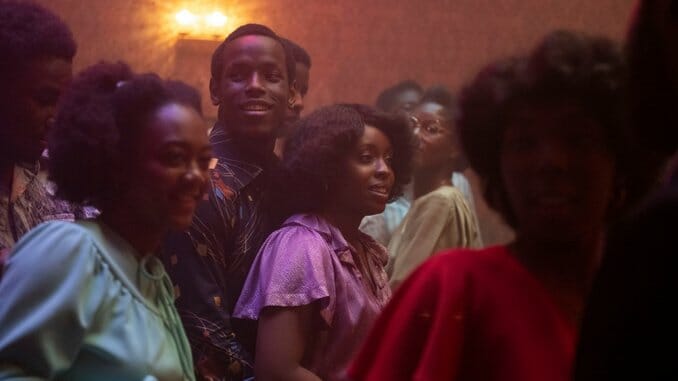Best of Criterion’s New Releases: April 2023

Each month, Paste brings you a look at the best new selections from the Criterion Collection. Much beloved by casual fans and cinephiles alike, Criterion has presented special editions of important classic and contemporary films for over three decades. You can explore the complete collection here.
In the meantime, because chances are you may be looking for something, anything, to discover, find all of our Criterion picks here, and if you’d rather dig into things on the streaming side (because who’s got the money to invest in all these beautiful physical editions?) we’ve got our list of the best films on the Criterion Channel. But you’re here for what’s new, and we’ve got you covered.
Here are all the new releases from Criterion, April 2023:
The Seventh SealYear: 1957
Director: Ingmar Bergman
Stars: Max von Sydow, Inga Landgré, Gunnar Björnstrand
Runtime: 96 minutes
Like any cultural touchstone, any ubiquitous landmark of the arts more mitotically absorbed than actually experienced, The Seventh Seal is bound to be misremembered. We know well the chess game with Death (Bengt Ekerot), as well as Death’s get-up—a sort of gothic mix between Musketeer and monk—etched into the firmament of our pop obsessions (for most my age, it was in Bill and Ted’s Bogus Journey that the bone-white face and cape were first encountered), even if we’ve never actually seen the film. We know well the name of director Ingmar Bergman or that of star Max von Sydow (recently in Force Awakens), even if we aren’t familiar with their work, so ingrained into any working conception of “international cinema” are they, much of which is due to The Seventh Seal. We know well the dour chiaroscuro of Swedish cinema, the arch-symbolic pretension of art house stuff that squeezes all mirth from every orifice of the viewer. But do we forget how little of this movie is the chess game—how dimwitted Death can be? How funny The Seventh Seal actually is? “Is it so cruelly inconceivable to grasp God with the senses?” asks knight Antonius Block (von Sydow). “What is going to happen to those of us who want to believe but aren’t able to?” With The Seventh Seal, a simple story about a jaded knight returning from the Crusades to find that the world he fought for has seemingly been abandoned by God, Bergman sought clarity in the problem of faith—he wanted to map the vast spiritual terrain between experiencing and knowing, between feeling and believing. The reason why today the film still resonates, why we know the movie without having to experience it, is because of that clarity in Bergman’s vision: The Seventh Seal is all symbol, metaphor, allusion—but what it’s symbolic of, a metaphor for or alluding to isn’t too hard for any of us to figure. When the knight asks a question, God answers with silence—and there’s little humans understand better than how that feels. —Dom Sinacola
The Fisher KingYear: 1991
Director: Terry Gilliam
Stars: Robin Williams, Jeff Bridges, Mercedes Ruehl, Amanda Plummer, Michael Jeter
Rating: R
Runtime: 137 minutes
Terry Gilliam may be best known for his completely inimitable style. Tune in to a Gilliam flick even halfway through and you’ll recognize his signature repertoire of angles—low, high, and Dutch—as well as his love of rectilinear lenses and his meticulously stylized mise en scène. With The Fisher King, though, his distinct aesthetic was transplanted from realms imagined to the far more familiar backdrop of Manhattan, where shock jock Jack Lucas falls from grace after an on-air rant leads an impressionable listener to commit mass murder. Jack is given a chance at redemption when he meets Parry, a delusional vagrant questing for the Holy Grail whose wife died in that aforementioned shooting spree; they bond, and Jack sets out to help Parry score a date with his distant crush, Lydia. The Fisher King wrestles with Brazil for the title of “best Gilliam film,” but it’s almost undoubtedly the most refined entry in his body of work, a contemporary epic that truly lives up to the meaning of the word. Come for Jeff Bridges and Robin Williams, stay for the Gilliam commentary track. —Andrew Crump
-

-

-

-

-

-

-

-

-

-

-

-

-

-

-

-

-

-

-

-

-

-

-

-

-

-

-

-

-

-

-

-

-

-

-

-

-

-

-

-








































